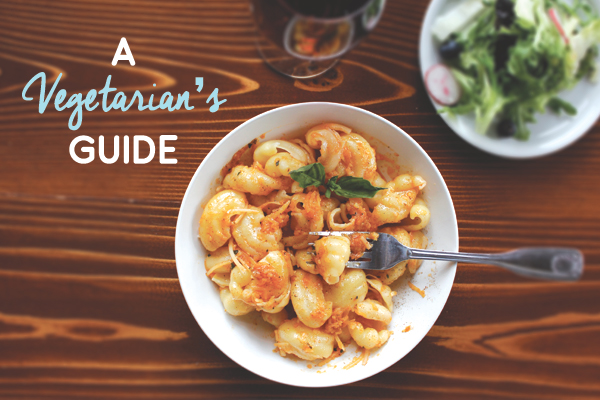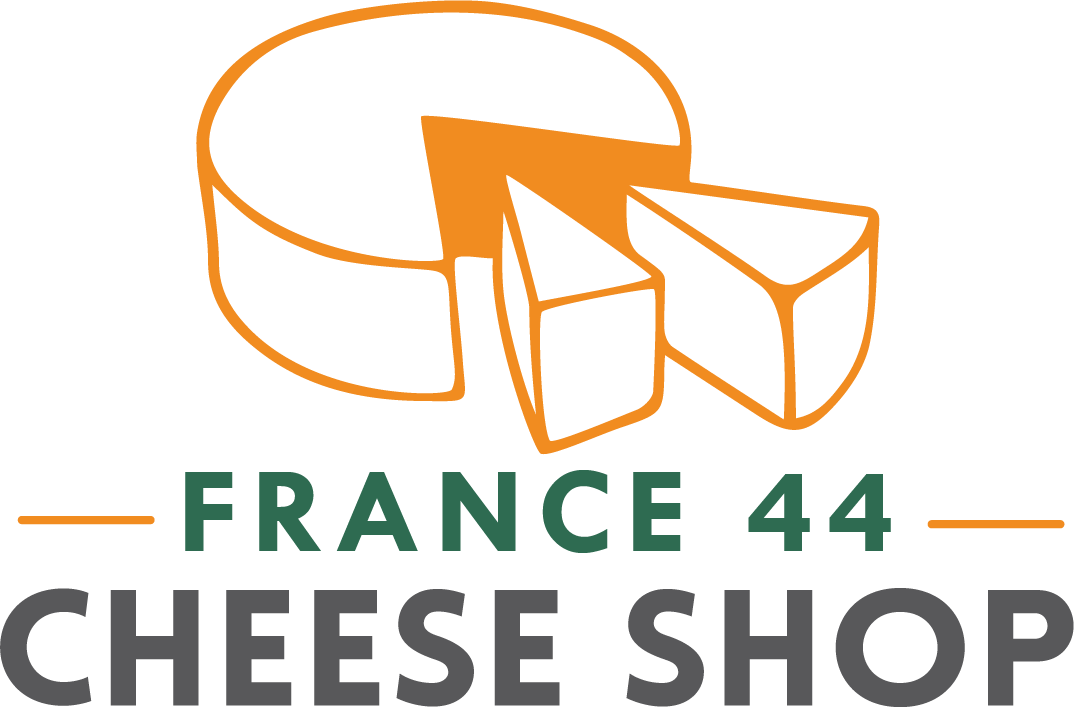 Meet Eliza, our cheese shops’ resident vegetarian! She’ll be showing you around the shop from an herbivore’s point of view. This is the first in a multi-part series.
Meet Eliza, our cheese shops’ resident vegetarian! She’ll be showing you around the shop from an herbivore’s point of view. This is the first in a multi-part series.
This past month I turned 24, marking a decade-long abstinence from meat consumption. Eating vegetarian has become a deeply ingrained habit for me and when I started working at the France 44 Cheese Shop last September, I made it my job to carve a vegetable-shaped path through my experience.
Despite the presence of countless delicious (allegedly) meat-centric products, the France 44 and St. Paul Cheese Shops have a bounty of vegetarian options. Back in June, I shared a few tips to following an herbivore's lifestyle and here I am again to bestow some more knowledge upon you vegetable lovers. This time I’ll focus more on home cooking and the great products you can buy at our cheese shops to create delectable meals of your own.
1.Whole Milk Ricotta, the single best-kept secret of the Cheese Shop Our Ricotta comes from Calabro Cheese Corporation, in my beloved home state of Connecticut. This fluffy, luscious, smooth ricotta was originally distributed out of New Haven—home to the country’s best pizzeria and Mecca for delicious Italian fare—so you know it’s good. Though we don’t sell this cheese directly out of our case, we almost always have it, so please ask us to package some up for you!
Ricotta is versatile. You can bake it in lasagna, put it on pizza, eat it for breakfast on toast with honey, or have us smear it all over your favorite sandwich. Calabro ricotta is fresh and delicious and if you are anything like me, you will steal a bite whenever you can.
2. Pasta! So all this talk of Italian food has you hungry for pasta. Well you’re in luck because we sell pasta in every shape and size! Trust me, I have a new appreciation for our selection after having recently rearranged the shelves. We have a lot of pasta and it's all impeccably made. From buccatini to ringlets to shells, we’ve got it. And you can also always ask a monger if you need a recommendation. Pick up pasta with some delicious Scarpetta sauce or our house-made Smoked Paprika Parmesan and you are good to go. Mix in some grilled vegetables from our deli case for that extra wow factor.
3. Soup Though it’s only August, fall is right around the corner and that means soup. We offer a smattering of delicious vegetarian soups in the grab-and-go case. Here are some of my favorites:
• Carrot Fennel: Oh man, it is simple and delicious and it’s so healthy it’s almost like you went for a run just by eating it. Shave some of our Cravero Parmigiano-Reggiano right on top and invite me over for dinner. And don’t forget to dip one of our freshly baked baguettes in that bowl of golden soup!
• Gazpacho: I know I know, I’m getting hasty thinking about fall and not even savoring summer, the absolute best season of the year. Gazpacho is basically synonymous with summer soup so eat some chilled deliciousness on your next picnic at the beach.
• Tomato Soup: Let the tomatoes speak for themselves! They are delicious and so is this soup, which truly highlights all the natural sweetness and deliciousness of everyone’s favorite summer vegetable.
4. Melts
In my last post, I told you all about the different vegetarian sandwiches you can order at the cheese shop. What I failed to mention is that every once and a while it’s important to switch it up. Regular sandwiches are great, but you know what can be even better? Melts. Offered exclusively at our St. Paul Cheese Shop, our savory Melts are decadent, oozy grilled cheese sandwiches that are oh so vegetarian-friendly! Unlike our cold sandwich menu, which skews to the meaty side of things, more than half of our St. Paul shop's Melts are meat free. Check out these mouth-watering options:
• Barber’s English Cheddar and house-made harrissa • Melodie Comté with caramelized onions and whole grain mustard • Calabro whole milk mozzarella with house-made tomato-garlic confit • Double cream brie with cranberry chutney
And the best part? Each Melt is served with a shot of the tomato soup I mentioned above. Perfect!
I’m happy to say, after working at the Cheese Shop for nearly a year, I am still discovering new vegetarian indulgences. Remember, you can always ask your cheese monger for vegetarian options or alternatives. Enjoy that meat-free lifestyle!


